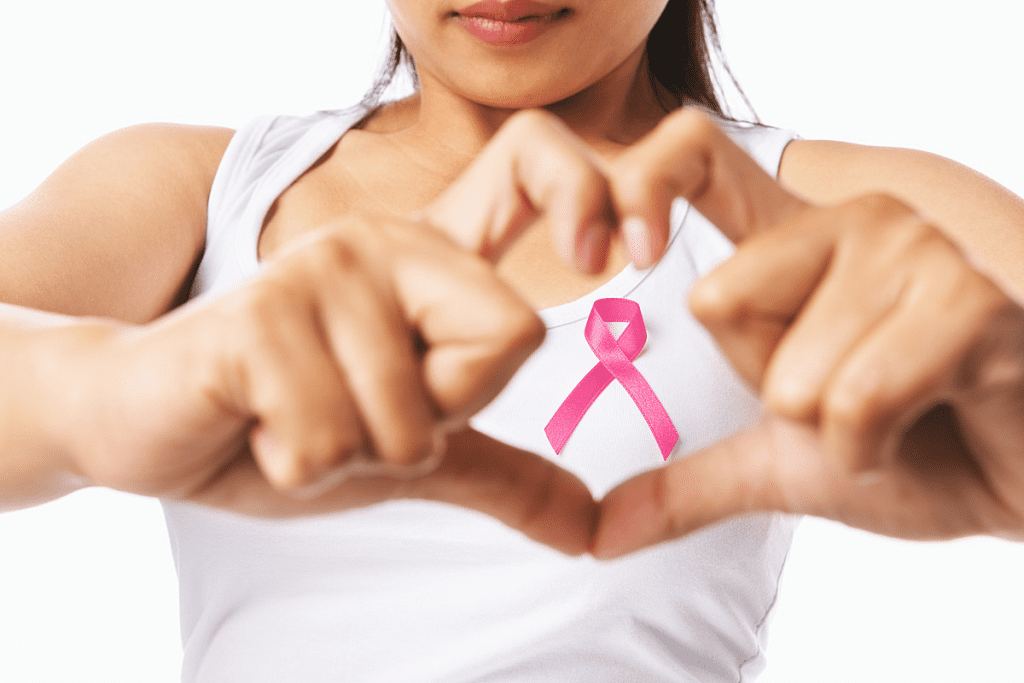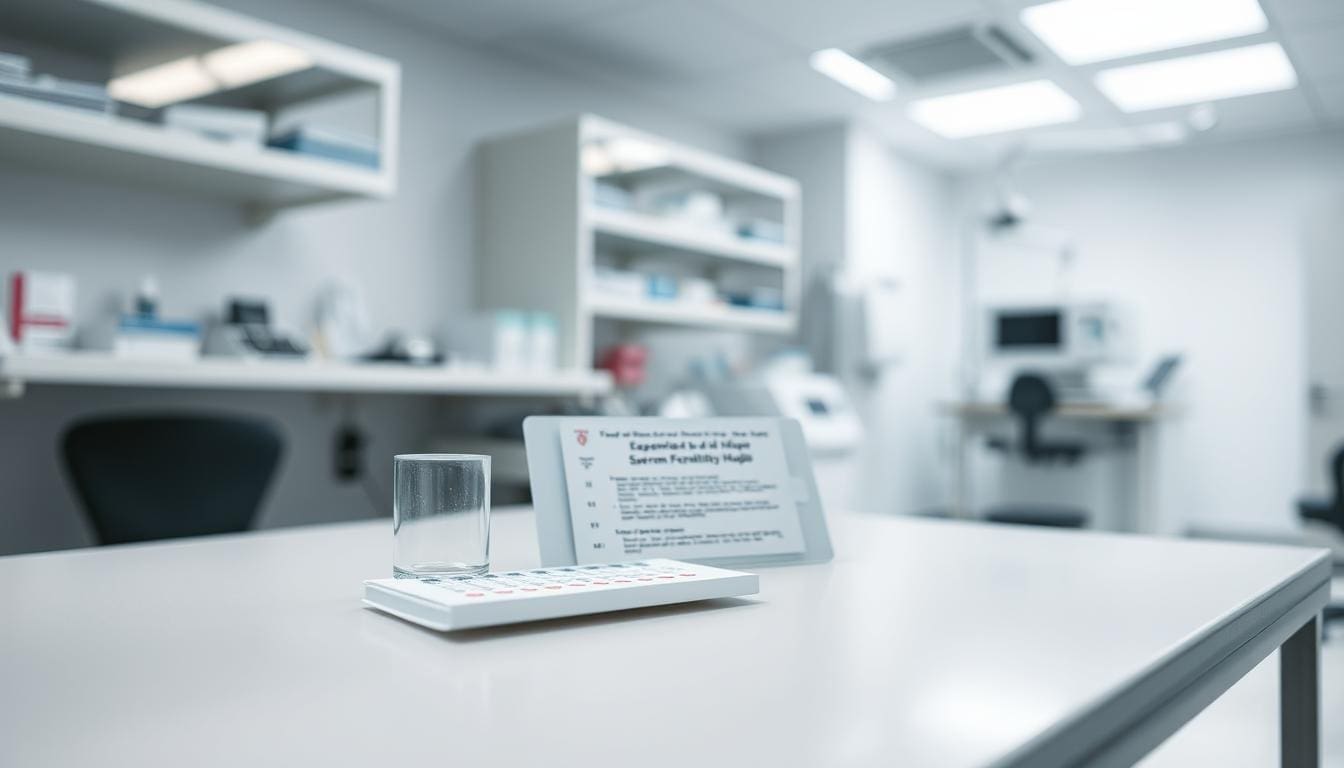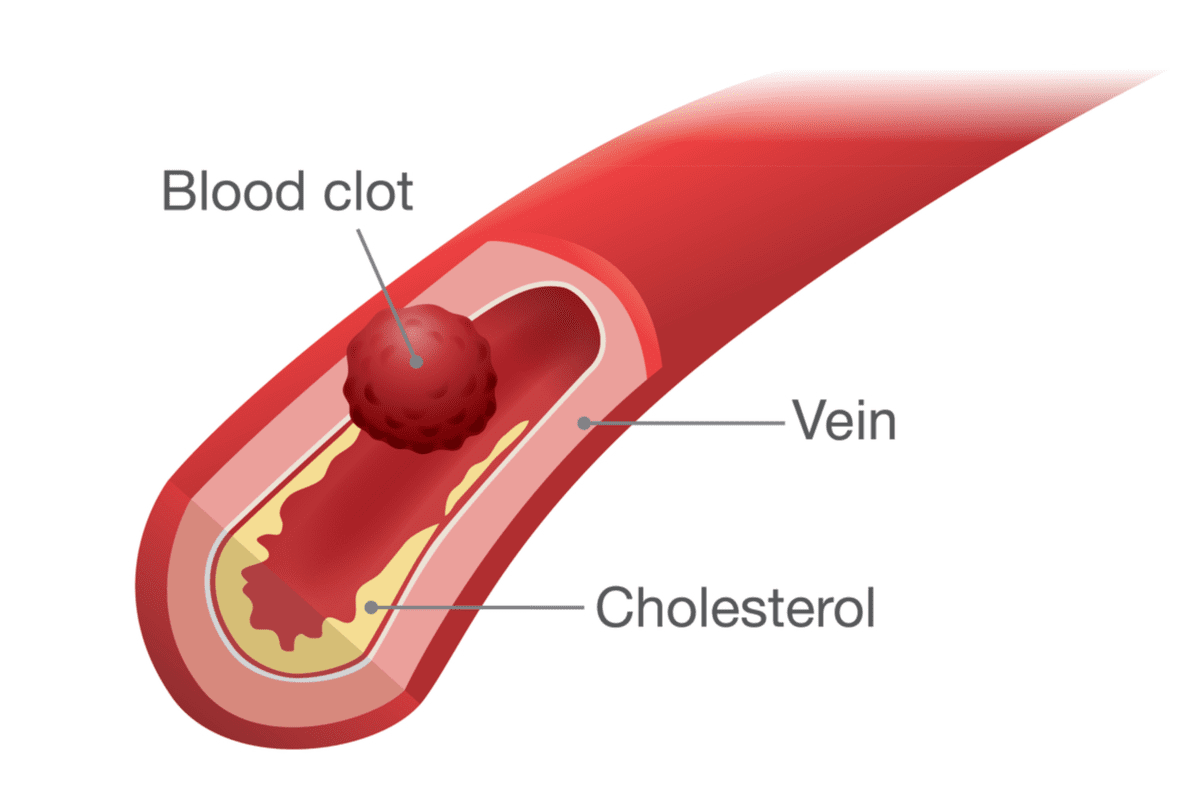Last Updated on November 26, 2025 by Bilal Hasdemir

Did you know that millions of people worldwide worry about having cancer all the time? Even when there’s no reason to think they do. This feeling, called cancer anxiety, can really hurt your mental health and daily life. Learn to identify Cancer diarrhea symptoms and understand what cancer-related diarrhea may look like.
Constantly fearing you have cancer can feel overwhelming. It’s not just the fear itself. It’s how it changes your life and how you feel every day. In this article, we’ll look at why you might feel this way. We’ll also give you tips on how to deal with these fears.
Key Takeaways
- Understanding the causes of cancer anxiety
- Recognizing the impact on mental health
- Strategies for managing health anxiety
- Importance of seeking professional help
- Ways to cope with persistent fears
Understanding Cancer Anxiety and Health Fears
Many people worry too much about cancer, even when doctors tell them it’s okay. This worry is part of a bigger issue called health anxiety. It’s when someone constantly fears they have a serious illness. Fears about cancer can really hurt daily life and how well someone feels.
What is health anxiety?
Health anxiety is when someone worries too much about being sick, even when doctors say they’re fine. It’s about always fearing illness, thinking normal body feelings are signs of serious disease, and always wanting to see doctors. This can really hurt how well someone lives, causing a lot of stress and making it hard to do everyday things.
How cancer-specific fears develop

Cancer fears can start for many reasons. It might be because of a family history of cancer, seeing a lot of cancer news, or thinking normal body feelings are signs of cancer. The fear of cancer is often because it’s seen as very serious and affects many people and their families. Knowing why these fears start is key to dealing with them.
The prevalence of cancer worry in the general population
Research shows many people worry about cancer. This worry can be mild or very strong and interfere with daily life. Because so many people worry about cancer, we need good ways to help them feel better. This can improve their overall happiness and health.
The Psychology Behind Persistent Cancer Worries

Our brains are wired to respond to threats. This natural response can turn into persistent anxiety when it comes to cancer. It’s important to understand this to manage cancer anxiety well.
How the Brain Processes Health Threats
The brain’s response to health threats is complex. When we see a threat, our amygdala is triggered, causing fear. This fear is meant to protect us but can become too much in the case of cancer anxiety.
The Process Involves:
- Recognition of a threat
- Emotional response from the amygdala
- Cognitive processing of the threat
The Role of Uncertainty in Amplifying Fear
Uncertainty makes fear worse when it comes to cancer. When we’re unsure about our health, our brains imagine the worst. This uncertainty makes anxiety worse as we try to deal with the unknown.
“The unknown is a powerful trigger for anxiety, and cancer, with its unpredictable nature and potentially severe outcomes, is a prime example of something that can spark intense fear.”
Why Cancer Triggers Intense Anxiety
Cancer triggers intense anxiety because of its severity and the fear of the unknown. The mere mention of cancer can cause a strong emotional response. This is because cancer is linked to pain, suffering, and death.
| Factors Contributing to Cancer Anxiety | Description |
| Fear of the Unknown | Uncertainty about the disease and its outcomes |
| Perceived Severity | The severity of cancer and its impact on life |
| Lack of Control | Feeling unable to control the disease or its progression |
Understanding these psychological mechanisms is key to managing cancer anxiety. By recognizing how our brains process threats and the impact of uncertainty, we can start to find ways to cope with these fears.
Common Triggers for Cancer Anxiety
Many things can make cancer anxiety worse. It’s key to know what these are. This way, we can find ways to deal with it better.
Media Exposure and Cancer Information Overload
The media shapes how we see cancer. Seeing a lot of cancer news and ads can make us feel like danger is everywhere. This information overload can make some people more anxious.
We hear about cancer survivors and awareness campaigns a lot. These stories are meant to help, but they can also scare us. It’s important to think about how media affects our minds.
Personal or Family History of Illness
Having cancer in your family or having had it yourself can make you worry more. People who have been through cancer or have a family history might watch their health closely. This can sometimes lead to too much worry.
| Factor | Impact on Cancer Anxiety |
| Personal history of cancer | Increased vigilance and fear of recurrence |
| Family history of cancer | Heightened awareness and concern about genetic risk |
Physical Sensations Misinterpreted as Symptoms
Thinking normal body feelings are cancer is a big worry trigger. Today, we pay a lot of attention to our bodies. This can lead to thinking normal things are sick.
For example, a headache might seem like a brain tumor, or a small skin spot might look like skin cancer. This thinking can start a cycle of worry and looking for reassurance.
Traumatic Health Experiences
Experiences like having had cancer or knowing someone who did can leave a mark. These experiences can make cancer anxiety worse, even if you’re healthy now.
Knowing how past experiences affect us today can help us face our fears. Recognizing what triggers our anxiety is the first step to managing it.
Distinguishing Between Cancer Anxiety and Actual Symptoms
The difference between cancer anxiety and real symptoms can be hard to see. It’s important to know what to look for. Cancer anxiety can make you feel sick, even if you’re not. Knowing the difference helps manage health fears better.
Common Physical Manifestations of Anxiety
Anxiety can make you feel physical symptoms that might seem serious. These can include:
- Tremors or shaking
- Rapid heartbeat or palpitations
- Sweating or cold, clammy hands
- Nausea or abdominal discomfort
- Shortness of breath or difficulty breathing
These happen because anxiety triggers our body’s “fight or flight” response. This releases stress hormones like adrenaline. These hormones can make you feel uncomfortable and scared.
How Stress Affects the Body
Stress can really affect how our body works. Chronic stress can lead to:
- Muscle tension, causing pain or stiffness
- Digestive issues, such as irritable bowel syndrome (IBS)
- Sleep disturbances, including insomnia or restless sleep
- Weakened immune system, making us more susceptible to infections
Knowing how stress affects us can help figure out if symptoms are from anxiety or something else.
When Symptoms Warrant Medical Attention
While many anxiety symptoms can be handled on our own, sometimes we need a doctor. It’s key to see a doctor if you have:
- Severe or persistent pain
- Unexplained weight loss
- Difficulty breathing or chest pain
- Severe headaches or neurological symptoms
Knowing when to go to the doctor can help reduce worry. It ensures we get checked for serious health problems on time.
The Cycle of Symptom Checking and Reassurance Seeking
For those with cancer anxiety, a cycle of compulsive symptom checking and endless reassurance seeking often starts. This cycle is very hard to break. It doesn’t help with anxiety and can make it worse over time.
Why Symptom Checking Becomes Compulsive
Symptom checking becomes a compulsive habit for those with cancer anxiety. The constant watch for symptomscomes from a deep fear of missing something important. This checking gives temporary relief, but it’s short-lived.
This habit is hard to stop. It’s made worse by the body’s natural feelings, which can be mistaken for illness. This keeps the cycle going.
The Temporary Relief of Medical Reassurance
Getting reassurance from doctors can give a quick sense of security. Medical professionals offer peace of mind through tests and reassuring words. But this comfort doesn’t last long.
Needing reassurance over and over can be hard on both the person and the healthcare system. Dependence on others can make it hard to trust oneself, making anxiety worse.
How Reassurance Seeking Reinforces Anxiety
Even though reassurance gives quick comfort, it makes anxiety worse in the long run. The need for reassurance makes people rely on others to handle their anxiety. This stops them from learning to cope on their own.
This cycle makes it hard to stop needing medical reassurance. It’s key to break this cycle to manage cancer anxiety and improve well-being.
When Cancer Anxiety Becomes Clinical: Signs and Diagnosis
It’s important to know when cancer anxiety turns into a serious issue. Normal fear about cancer is okay, but when it gets too much and affects daily life, it might be a problem. This problem is called illness anxiety disorder.
Differentiating Normal Concern from Illness Anxiety Disorder
Illness anxiety disorder is when you worry too much about being sick, even when doctors say you’re fine. To tell if you’re worried too much, look at how much it bothers you and how it affects your daily life. People with this disorder worry a lot for six months or more.
Key characteristics of illness anxiety disorder include:
- Excessive and persistent fear of having cancer
- Preoccupation with bodily sensations or symptoms
- Frequent checking of body symptoms
- Seeking excessive reassurance from healthcare providers
- Avoidance of medical appointments or procedures due to fear
Diagnostic Criteria for Health Anxiety
The DSM-5 lists criteria for health anxiety:
| Criteria | Description |
| Preoccupation with having or acquiring a serious illness | Somatic symptoms are not present or, if present, are only mild in intensity |
| Excessive health anxiety | Individual is easily alarmed about personal health status |
| Excessive health-related behaviors | Such as checking body symptoms or seeking reassurance |
| Duration | Symptoms last for at least 6 months |
Getting a correct diagnosis is key to finding the right treatment. Doctors use interviews, questionnaires, and medical checks to diagnose health anxiety.
Comorbid Conditions with Cancer Anxiety
Cancer anxiety often goes hand in hand with other mental health issues. These include:
- Major depressive disorder
- Generalized anxiety disorder
- Panic disorder
- Obsessive-compulsive disorder (OCD)
It’s important to know about these other conditions. A study showed that people with illness anxiety disorder often have other mental health problems. This makes treatment more complex.
“The presence of comorbid conditions can significantly impact the treatment outcome for individuals with cancer anxiety. A thorough diagnostic evaluation is essential to identify all relevant conditions.”
Understanding the diagnostic criteria and recognizing other conditions helps doctors treat cancer anxiety better.
Effective Treatment Approaches for Cancer Anxiety
People with cancer anxiety can find relief through several proven treatments. These methods aim to lessen anxiety, improve coping skills, and boost overall happiness.
Cognitive Behavioral Therapy Techniques
Cognitive Behavioral Therapy (CBT) is a top choice for treating cancer anxiety. It helps people spot and change negative thoughts, avoid worst-case scenarios, and find better ways to cope. It uses techniques like changing thoughts, facing fears, and managing stress.
Key CBT techniques include:
- Cognitive restructuring to challenge and modify distorted or unhelpful thinking
- Exposure therapy to gradually confront feared situations or thoughts
- Stress management techniques, such as relaxation and mindfulness exercises
Medication Options and Considerations
In some cases, medication is suggested to manage cancer anxiety. SSRIs and SNRIs are often prescribed. Always talk to a doctor to find the right medication and dosage.
Medication should be considered when:
- Anxiety symptoms are severe and interfere with daily life
- Other treatments have not been effective
- There is a history of successful treatment with medication
Mindfulness and Acceptance-Based Approaches
Mindfulness and acceptance therapies, like ACT and MBSR, can also help with cancer anxiety. They focus on being present, accepting things as they are, and taking action based on values.
“Mindfulness is the awareness that arises through paying attention on purpose, in the present moment, and non-judgmentally to the unfolding of experience.” – Jon Kabat-Zinn
When to Consider Professional Help
If cancer anxiety is really affecting your life, getting professional help is key. Mental health experts can diagnose and create a treatment plan just for you. Getting help early can stop anxiety from getting worse and improve results.
Signs that professional help is needed include:
- Anxiety symptoms that persist or worsen over time
- Interference with daily activities, work, or relationships
- Presence of comorbid mental health conditions
Self-Help Strategies to Manage Cancer Fears
We can fight cancer fears by using self-help methods. Taking action helps us feel less anxious and better overall.
Developing Healthy Information Consumption Habits
In today’s world, it’s easy to get lost in health info. We need to control how much we read. This means not spending too much time on health topics on social media or untrusted websites.
Instead, look for reliable sources. Websites from trusted health organizations and journals are good. Healthcare professionals also offer valuable info. This way, we get accurate info and avoid worries.
Practical Techniques to Interrupt Worry Cycles
Breaking worry cycles is tough, but there are ways to do it. Mindfulness meditation helps by focusing on now, not worries about the future or past.
Cognitive restructuring is another tool. It helps by changing negative thoughts into more positive ones. This can make us feel less anxious.
“The mind is everything; what you think, you become.” – Buddha
Building a Balanced Approach to Health Monitoring
It’s good to know about our health, but too much can make us anxious. We need to find a balance. This means not checking our bodies too often and not getting too many tests.
Focus on being healthy in general, not just worried about cancer. This helps us stay calm and focused on well-being.
Creating a Support Network
A strong support network is key for managing fears. This includes family, friends, support groups, and mental health experts.
Connecting with others who get it helps us feel less alone. Support groups, online or in-person, are great for sharing and learning. They offer a safe place to talk and find support.
- Join local support groups for cancer survivors and individuals with health anxiety.
- Connect with others through online forums and social media groups focused on cancer anxiety.
- Seek professional help from therapists or counselors specializing in health anxiety.
By using these strategies, we can take charge of our fears. This improves our life quality a lot.
Conclusion: Moving Forward Beyond Cancer Anxiety
Overcoming cancer anxiety is a journey that needs a full approach. It includes using effective coping strategies and getting support. By understanding what causes cancer anxiety, people can manage it better. They can also improve their mental health through mindfulness and relaxation.
We’ve looked at different ways to handle cancer anxiety. This includes learning to consume health information wisely and keeping a balanced health check routine. These steps help reduce stress and anxiety, making life better.
It’s possible to manage cancer anxiety with the right tools and support. Getting professional help and using effective treatments can help overcome fears. We encourage those dealing with cancer anxiety to start their journey towards a more balanced and fulfilling life.
FAQ
What is cancer anxiety, and how does it differ from normal concern about cancer?
Cancer anxiety is when you worry too much about getting cancer. It stops you from enjoying your day. It’s different from normal worry because it’s so intense and affects your happiness.
Why do some people develop intense anxiety about cancer while others do not?
Many things can make you worry about cancer a lot. These include having a family history of cancer, seeing too much about it in the media, thinking symptoms mean cancer, or having bad health experiences.
How can I distinguish between cancer anxiety symptoms and actual health issues?
Knowing how anxiety shows up in your body can help. But, if you’re not sure, it’s smart to talk to a doctor. They can check if you’re really sick.
Why do I feel the need to constantly check my body for cancer symptoms?
Checking your body for cancer can be a way to deal with anxiety. But, it can make your anxiety worse over time. Getting help and finding new ways to cope is key.
Can reassurance from medical professionals help alleviate cancer anxiety?
Getting reassurance from doctors might help a little. But, it can also make your anxiety worse. Talking to a therapist about your worries is often more helpful.
What is illness anxiety disorder, and how is it diagnosed?
Illness anxiety disorder is when you worry too much about being sick, even when doctors say you’re not. Doctors look at how much you worry and how it affects your life to diagnose it.
What treatment options are available for managing cancer anxiety?
There are many ways to deal with cancer anxiety. These include therapy, medicine, mindfulness, and learning to accept your worries. What works best is different for everyone.
How can I develop healthier habits to manage my cancer anxiety?
To feel better, try not to overdo it with health news. Stop worry cycles with techniques. Monitor your health in a balanced way. And, find people who support you.
When should I consider seeking professional help for cancer anxiety?
If cancer anxiety is really getting in the way of your life, get help. A doctor can point you to the right therapy and support.
Can stress cause or exacerbate cancer anxiety?
Yes, stress can make cancer anxiety worse. Reducing stress with relaxation, mindfulness, and other methods can help.
Are there support groups for individuals dealing with cancer anxiety?
Yes, there are groups for people with cancer anxiety. They’re a great place to share and learn from others who understand what you’re going through.
References
- National Health Service. (2023). Health anxiety. https://www.nhs.uk/mental-health/conditions/health-anxiety/
- National Institute of Mental Health. (2023). Anxiety disorders. https://www.nimh.nih.gov/health/topics/anxiety-disorders
- World Health Organization. (2023). Anxiety disorders. https://www.who.int/news-room/fact-sheets/detail/anxiety-disorders






